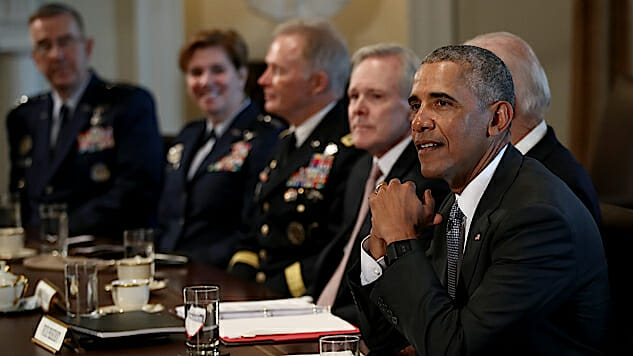Not the Russians: A Few Plausible Alternatives to the Official Election Hack Story
Photo by Win McNamee/Getty
Today is ODNI day on Paste. Check back later for more analysis on the intelligence report that came out late last week, and what it says about state-sponsored Russian hackers influencing the 2016 election.
![]()
On Friday, the political establishment whipped itself into a fury over the release of an unclassified version of the Director of National Intelligence’s report on the purported Russian hacking of the 2016 election. The report, entitled Assessing Russian Activities and Intentions in Recent US Elections, was long on hyperbole—but woefully short on substance.
Commentators were quick to point out that the vast majority of the report relied on the Russian television network RT’s reporting on underreported stories and a marked antipathy towards Clinton. Abby Martin’s show Breaking the Set, which ended two years ago, was presented as a clear, present, and new danger. As media critic Adam Johnson put it, “regardless of one’s thoughts on Russian hacking the fact that half the report was a 5-year-old Intro to Marketing breakdown of RT is bizarre.”
It’s a lazy, half-baked attempt at explaining away the election of Donald Trump by the outgoing intelligence officials that will leave their offices on January 20. Introspection on the part of the Democratic Party and the broader political establishment must be avoided lest they learn any lessons from their electoral defeat—it’s better to blame the Cold War enemies of the United States. And that fits the pattern on this long running story.
Because for all the repetition and chest beating over Russian involvement in the hacking of the DNC and the Clinton campaign, there’s still been very little actual evidence presented. What has been presented is sketchy at best and thoroughly inconclusive. In fact, there’s at least as much indication of any number of other individuals or groups as responsible for the dumps of information from the Democrats. And that lack of evidence is starting to raise questions among journalists.
The Russian hack story goes something like this: Vladimir Putin, angry at Hillary Clinton for her alleged involvement in protests in December, 2011, ordered the hack of the DNC and the Clinton campaign to ensure the party’s inner workings would be revolting enough to the general public to deliver the presidency to Donald Trump. Trump is either a useful idiot or a KGB plant, depending on your level of investment in this storyline—in other words, if you’re an adherent to this version of events, you either believe this started in the 1980s or only just recently.
And it’s working quite well. The craft beer and ADHD medication-inspired ramblings of a buffoon with a Duke Nukem knock off haircut on the “game theory” that Obama and Clinton were playing against the Russians received high praise from liberal media elites. Clara Jeffery of the misnomered Mother Jones, for example, called the hours-long social media babbling “a Federalist Paper for 2016.”
Much of the proof for the Russian hack presented revolves around unnamed sources in the intelligence community vaguely asserting there is proof of Russian involvement in the election hacks—with no evidence whatsoever presented. The new report is more of the same—all assertions and vagaries, nothing concrete. It’s been following media critic Adam Johnson’s “North Korea School of Journalism” pretty closely so far. The closest we got to actual details on the “proof” before Friday was on December 29, when President Obama released documents purporting to show the Russian involvement in the hacks.
Yet there is much evidence that the information contained in what are largely referred to as the “hacks” may have come from a variety of places. Here we should clarify that there are at least three separate incidents of hacking or data leaking. First, the two infiltrations of the Clinton campaign, first in the summer of 2015 and then again in the spring of 2016. Second, the Podesta emails dump. Third, the hacking of the DNC itself.
The two infiltrations of the Clinton campaign may well have come from the Russians. But it’s just as likely that they could have come from the campaign itself. As I reported in December, the Clinton campaign’s data security was so lax is as to be practically nonexistent. Passwords were written on whiteboards and volunteers were given remote access to databases after mere hours on the job.
-

-

-

-

-

-

-

-

-

-

-

-

-

-

-

-

-

-

-

-

-

-

-

-

-

-

-

-

-

-

-

-

-

-

-

-

-

-

-

-








































